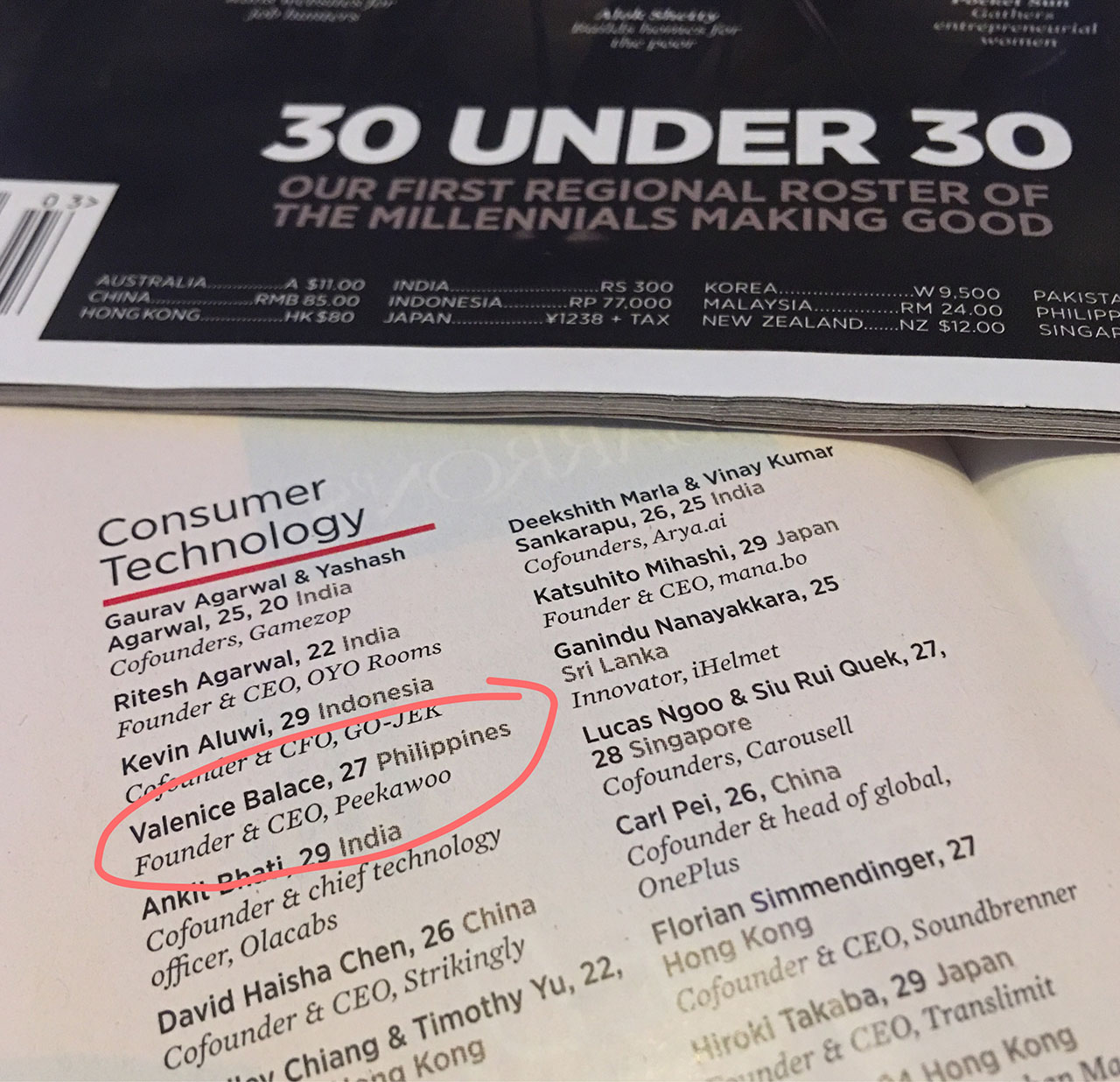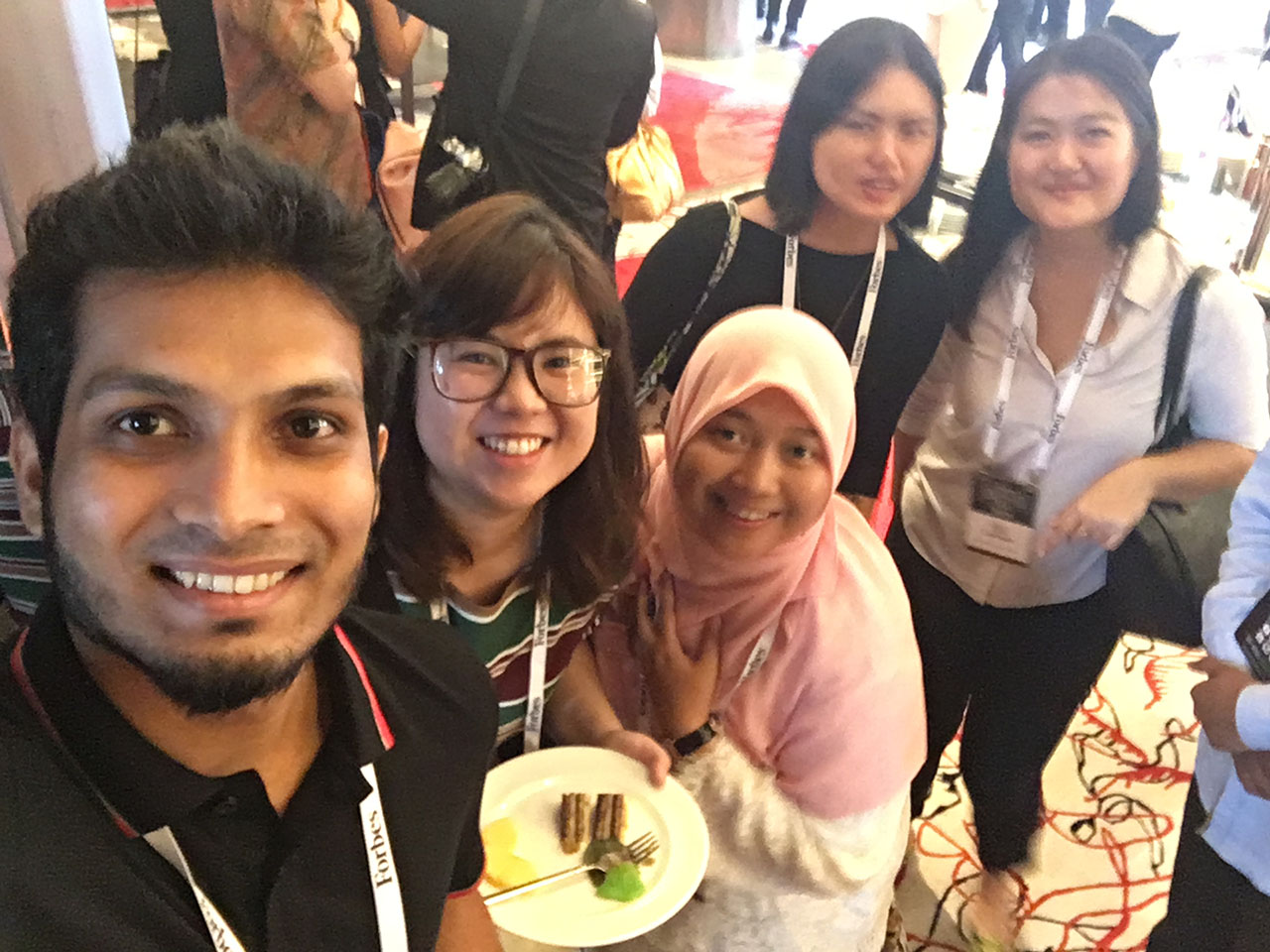In today’s world, how a business adapts to the dictates of technology and ever-evolving market needs and desires can spell the difference between success and failure. Regardless of how much success a company may have had in the past, a lack of innovation and the inability to move with the times can render a company irrelevant in a snap. When disruption has become the name of the game, a company’s digital transformation holds the key to its future—an idea that JG Summit Holdings has embraced wholeheartedly.
In 2018, it established the Digital Transformation Office to realize its goal of becoming the leading digital conglomerate in the country. Among the new division’s recruits was a certain Valenice Balace. If the name sounds familiar, you may have read about her before. While she was in her mid-20s, she was featured on Forbes magazine’s 30 Under 30 Asia 2016 list, which recognized her visionary idea to create a safe dating app for conservative Asian women, Peekawoo. She later went on to develop Honesty Apps, a business that can create mobile applications within a week's time and at a fraction of the industry cost, by reusing code and building it with a microservices foundation stemming from her dating business and apps. This coding wunderkind was once the youngest to receive funding from Kickstart Ventures and, in 2016, was invited to attend Google’s Launchpad Accelerator program in Silicon Valley.
At age 27, Valenice Balace made it to Forbes' 30 Under 30 Asia list in the field of Consumer Technology, for her innovative dating app, Peekawoo.
Joining the DTO, a department that’s mandated to drive the conglomerate’s digital transformation was right up her alley. Headed by Lisa Gokongwei-Cheng, this unit works with JG Summit’s various business units to make sure they’re equipped to handle the new ways of doing business. But don’t get the wrong idea—they are not undergoing digitalization for digitalization’s sake. Every project must fulfill a certain set of criteria, says Val. A transformation project is only considered successful if it gives customer or business value.
Val, who joined the DTO as its head of product development, was recently promoted to director of product management. Her role has a number of functions: “We make sure the digital products that we put out there are built correctly, can handle traffic, and load quickly. With today’s audience, a page must load in two to five seconds. We oversee product requirements, product engineering, development, and stats. I love numbers!” she exclaims.
A FATHER’S INSPIRATION
Val is part of the new generation of females who are breaking down gender stereotypes; the computer industry used to be male dominated, but is now less so. Growing up, she didn’t have a typical household—she remembers that what should have been the family’s living room was used as the office for the family apparel business. Just beyond the “office”, was the warehouse, where she played as a child. Her dad always liked learning new things (“He’d watch me do my programming homework, because he wanted to learn how to code also”) and had a penchant for DIY projects. “I think I got my inventive mind from my Dad. Maybe that’s how I got encouraged,” shares Val. “Tinkerer siya. Feeling ko, doon ako nag mana.”
Val Balace with fellow tech industry millennials at the Forbes Asia 30 Under 30 Summit.
Apart from coding, Val has a wide array of seemingly unconnected skills, mainly focused on building things: she can upholster furniture, make jewelry, and can do a bit of carpentry, too. She has something to fall back on if her career in tech doesn’t pan out, though that’s not very likely.
GET WITH THE PROGRAM
Val’s first big project with the DTO was for Robinsons Land’s Hotels and Resorts division. She was tasked with overhauling the room booking systems for the Go and Summit Hotels chains. With the “startup” mentality that she always practices, she didn’t go the traditional route of using the expertise of a known tech vendor, such as IBM, Oracle, or Accenture. “I knew of smaller tech companies which were headed by really smart people, who could also get the job done. For the hotels, we engaged the services of Djubo, a startup that specializes in hotel management.” In the months since the systems were put into place, her faith has paid off, as everything is running smoothly.
She uses the same reasoning when she works with locally based tech firms. “We are encouraging the business units to have faith in the smaller players.” They shouldn’t be ignored just because they aren’t big companies, she explains. “We want to grow the tech talent here. For the nation to be competitive, to build the skillset in this country, these are the things that I think, as a big conglomerate, we can help with.”
In the DTO, Val’s projects impact two sets of customers. The direct customers are the business units of JG Summit, while their indirect customers are the BU’s customers. In other words, “We handle the consumer-facing products of the BUs, like the Buyers’ and Sellers’ portals of Robinsons Land, the E-KYC (know-your-customer) loan application apps of Robinsons Bank, and the upcoming e-commerce sites of URC’s Exports Division and the Agro Industrial Group (AIG). She is especially proud of the latter. “The Kabalikat Portal is meant for the dealers and the distributors of URC’s Agri business. We took so many things into consideration. The audience is mostly farmers. We’ve continuously worked with everybody in the team, for example the new customer experience team, to make sure the features are useful and useable. If not, the adoption won’t be successful. So far, the feedback has been good.”
GOING BEYOND THE DIGITAL REALM
Val’s contributions aren’t limited to digital technology. In her free time, she mentors students from Technological University of the Philippines, whom, she discovered, may be able to give JG Summit’s Sustainability drive a big assist. According to these students, only between 10 to 30% of the country’s segregated garbage is recycled—the remainder still ends up in landfills, leaching harmful chemicals into the earth and eventually the sea. The students have come up with a design for a trash segregator that can turn discarded plastic into pellets, ready to be molded again into something new.
“Someone told me that a foreign company had pitched a similar idea, but for US$20,000. You know how much the students need to develop the prototype? Only P60,000!”
After meeting with other company officials, Val got the green light to proceed with the project. Her deadline for the prototype is in six months.
CHALLENGING THE NORM
A big misconception about the company’s digital transformation is that the old manual processes will simply be automated in a high-tech manner, from A-Z. Not so, says Val. All the steps have to be re-evaluated and examined. “We evaluate the business and product strategy, customer experience, business value, revenue, and cost per user. There is a lot of thought that goes into the projects.”
Sometimes, the old processes don’t stand up to scrutiny, so new procedures must be introduced. It’s not always the easiest thing to do when people are used to doing things a certain way, but eventually they catch on.
Val says, “As part of the digital transformation, besides all the expertise everyone on the team provides, there has to be a certain mindset in the company.” What she means is that sometimes, you have to be brave enough to challenge the way things are done. “To achieve something you haven’t achieved before, there is always a little bit of bravery and courage that you have to have to be able to get you to the next level. If you don’t have that, how can you fight the opposition, or how can you fight for what you believe in? Without bravery, without courage, things will always stay the same.”
Banner image courtesy Cosmopolitan Philippines. Photo by Mixi Ignacio.




